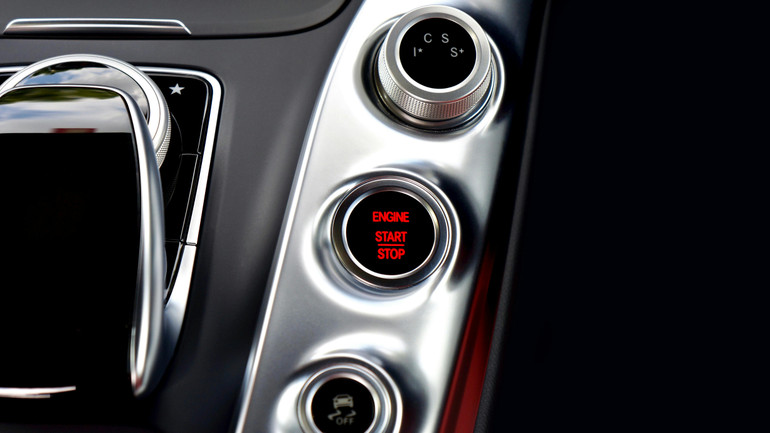The starter is one of the most critical components of your vehicle, as it’s responsible for getting your engine running. When the starter malfunctions, your car won’t start, leaving you stranded and frustrated. Understanding the signs of a failing starter and knowing where to find a reliable replacement can save you time, money, and stress.
At Rebuild Masters, we’ve been providing top-notch remanufactured starters for over 20 years. Proudly crafted in Orange County, California, our starters are restored to meet OEM specifications, ensuring reliability and performance at an affordable price.
In this post, we’ll explore the function of automotive starters, the symptoms of failure, and tips to prolong the life of your starter. Plus, we’ll show you why Rebuild Masters is the ideal choice for remanufactured starters.
What Does a Starter Do?
The starter is a small but powerful motor designed to initiate the combustion process in your engine. It engages with the flywheel or flexplate of the engine and uses electrical power from the battery to crank the engine and start it. Here’s a breakdown of how it works:
- Ignition: When you turn the key or press the start button, the starter solenoid activates.
- Engagement: The solenoid pushes the starter gear into contact with the engine’s flywheel.
- Rotation: The starter motor spins the flywheel, which turns the engine's crankshaft, initiating the combustion process.
Without a functioning starter, your vehicle won’t start, no matter how healthy the battery is.
Signs Your Starter Might Be Failing
Starters can wear out over time due to repeated use, exposure to heat, or electrical issues. Below are some common signs that your starter may need replacement:
1. Clicking or Grinding Noise
One of the most noticeable signs of a failing starter is a clicking sound when you turn the ignition. This indicates the starter solenoid is trying to work but the motor isn’t engaging. Grinding noises, on the other hand, suggest that the starter gear isn’t properly engaging with the flywheel.
2. Engine Won’t Start
If you turn the key and nothing happens—no cranking or even clicking—the starter could be the culprit. This can also occur due to issues with the electrical connections to the starter.
3. Intermittent Starting Issues
A failing starter may sometimes work and other times not. If your car starts unpredictably, the starter motor or solenoid may be worn out.
4. Dim Lights When Starting
If your headlights dim significantly when you attempt to start your car, it could indicate the starter is drawing too much power, leaving insufficient energy for other systems.
5. Burning Smell
A burning smell when starting your car can be a sign of an overheating starter motor or electrical connections.
6. Smoke from the Engine Bay
In extreme cases, a bad starter may produce smoke due to overheating or a short circuit. This requires immediate attention to prevent further damage.
Troubleshooting Starter Issues
If you suspect your starter is failing, here are some steps to troubleshoot the problem:
1. Check the Battery
Before blaming the starter, ensure your battery is fully charged and in good condition. A weak or dead battery can mimic starter problems.
2. Inspect Electrical Connections
Examine the cables connected to the starter and battery. Loose, corroded, or damaged connections can prevent the starter from functioning properly.
3. Tap the Starter
Sometimes, tapping the starter gently with a tool can temporarily free a stuck component inside and allow it to function. This is a short-term fix and not a permanent solution.
4. Test the Solenoid
The solenoid is responsible for engaging the starter motor. If the solenoid isn’t working, the motor won’t engage with the flywheel.
5. Consult a Professional Mechanic
If you’re unable to diagnose the issue, a mechanic can perform a thorough inspection to confirm whether the starter is the problem.
Why Choose a Remanufactured Starter from Rebuild Masters?
When it’s time to replace your starter, consider the cost-effective and eco-friendly option of a remanufactured starter. At Rebuild Masters, we specialize in restoring starters to their original performance levels, providing you with a reliable and affordable solution.
The Rebuild Masters Advantage
- Tested to OEM Standards
We ensure every starter we remanufacture meets or exceeds OEM specifications by using all-new, high-quality parts. This guarantees optimal performance and reliability. - Affordable and Reliable
Remanufactured starters cost significantly less than brand-new units while delivering the same performance and durability. - Environmentally Responsible
By remanufacturing and reusing starter cores, we reduce waste and promote sustainability. - Expertise You Can Trust
With over 20 years of experience, Rebuild Masters has earned a reputation for quality and craftsmanship. - Made in the USA
Our starters are proudly remanufactured in Orange County, California, ensuring top-notch quality control and support.
How to Extend the Life of Your Starter
Taking care of your starter and the surrounding components can help prolong its lifespan. Here are some tips to keep your starter in top shape:
1. Maintain Your Battery
A weak battery forces the starter to work harder, leading to premature wear. Regularly check and maintain your battery to ensure it’s in good condition.
2. Inspect Electrical Connections
Keep the cables and connections to the starter and battery clean and secure. Corrosion can disrupt the flow of electricity and strain the starter.
3. Avoid Overuse
Repeatedly cranking the engine without allowing the starter to cool can overheat the motor and lead to failure.
4. Address Engine Issues Promptly
Problems like poor fuel delivery or ignition issues can force the starter to work harder than necessary. Address these problems to reduce strain on the starter.
5. Regular Maintenance
Follow your vehicle manufacturer’s maintenance schedule to ensure all components, including the starter, are functioning properly.
Replacing Your Starter: What to Expect
If your starter fails and needs to be replaced, here’s what you can expect during the replacement process:
- Diagnosis: A mechanic will confirm that the starter is the issue and not related components like the battery or ignition switch.
- Removal: The old starter is carefully removed, and the connections are inspected for damage.
- Installation: A new or remanufactured starter is installed, and all connections are tightened.
- Testing: The mechanic will test the new starter to ensure it works correctly and the engine starts smoothly.
Why You Shouldn’t Ignore Starter Problems
Ignoring the symptoms of a failing starter can lead to more severe issues, including:
- Complete Engine Failure: A bad starter will eventually prevent your vehicle from starting altogether.
- Damage to Other Components: A malfunctioning starter can strain the battery, alternator, and electrical system.
- Inconvenience: Getting stranded due to a non-starting car can disrupt your day and lead to costly towing fees.
Conclusion
The starter is a critical component of your vehicle, and recognizing the signs of failure can help you avoid unexpected breakdowns. Whether you’re dealing with clicking sounds, intermittent starting issues, or a completely non-starting car, addressing the problem early is essential.
When it’s time to replace your starter, choose a remanufactured option from Rebuild Masters. With over 20 years of experience, we deliver high-quality starters that are tested to meet OEM standards. Our cost-effective and eco-friendly remanufactured starters are proudly made in the USA, ensuring reliability you can trust.
For reliable performance and expert craftsmanship, trust Rebuild Masters to keep your vehicle running smoothly. Contact us today to find the perfect remanufactured starter for your car!



